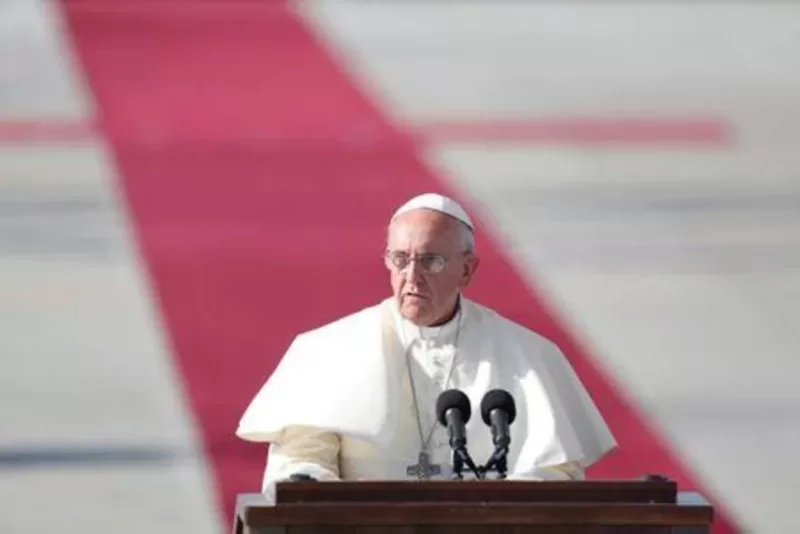Pope responds to criticism on Jewish book

Last month Reuters reported that Rabbi Rasson Arousi, chair of the Commission of the Chief Rabbinate of Israel for Dialogue with the Holy See, had written a stern letter to the Vatican, saying Francis’ comments appeared to suggest that the Torah, or Jewish law, was obsolete.
At a general audience on Aug. 11, the pope said: “The law (Torah) however does not give life.”
“It does not offer the fulfilment of the promise because it is not capable of being able to fulfil it … Those who seek life need to look to the promise and to its fulfilment in Christ.”
The Torah, the first five books of the Hebrew Bible, contains hundreds of commandments for Jews to follow in their everyday lives. The measure of adherence to the wide array of guidelines differs between Orthodox Jews and Reform Jews.
Arousi sent his letter on behalf of the Chief Rabbinate — the supreme rabbinic authority for Judaism in Israel — to Cardinal Kurt Koch, whose Vatican department includes a commission for religious relations with Jews.
In the letter Arousi asked Koch to “convey our distress to Pope Francis” and asked for a clarification from the pope to “ensure that any derogatory conclusions drawn from this homily are clearly repudiated.”
RECONCILIATION
Francis then asked Koch to explain that his words on the Torah reflecting on the writings of St. Paul in the New Testament should not be taken as a judgment on Jewish law, the sources said.
Last week Koch sent a letter to Arousi containing a quote made by Pope Francis in 2015: “The Christian confessions find their unity in Christ; Judaism finds its unity in the Torah.”
Jewish sources said they saw the Vatican letter as a sign of reconciliation.
For his part, the pope appeared to go out of his way in his last two public appearances to try to clear up what the Vatican considers a misunderstanding.
At a general audience on Sept 1, Francis said his words on St. Paul’s writings were “simply a catechesis (teaching homily) … and nothing else.”
At his weekly blessing on Sunday, he offered best wishes to Jews for the upcoming Jewish New Year, Rosh Hashanah, and for the subsequent feasts of Yom Kippur and Sukkot.
“May the new year be rich with fruits of peace, and good for those who walk faithfully in the law of the Lord,” he said.
Both Jewish and Vatican sources said the inclusion of the word “law” in what are normally routine greetings was significant and intentional.
Relations between Catholics and Jews were revolutionized in 1965, when the Second Vatican Council repudiated the concept of collective Jewish guilt for the death of Jesus and began decades of inter-religious dialogue. Francis and his two predecessors visited synagogues.
Francis has had a very good relationship with Jews. While still archbishop in native Buenos Aires, he co-wrote a book with one of the city’s rabbis, Abraham Skorka, and has maintained a lasting friendship with him.
How to submit an Op-Ed: Libyan Express accepts opinion articles on a wide range of topics. Submissions may be sent to oped@libyanexpress.com. Please include ‘Op-Ed’ in the subject line.
- Libya’s HCS invites applicants for key state roles - December 31, 2023
- UK calls on Iran to prevent escalation in Israel-Hamas conflict - November 05, 2023
- Libyan Interior Minister: Immigrant shelter costs a fortune - November 05, 2023


